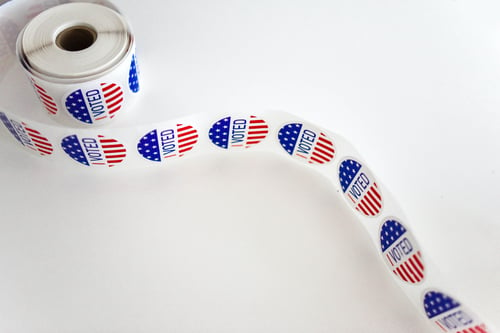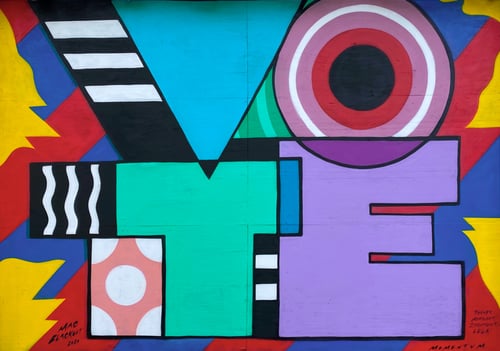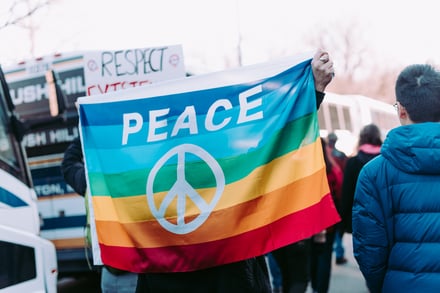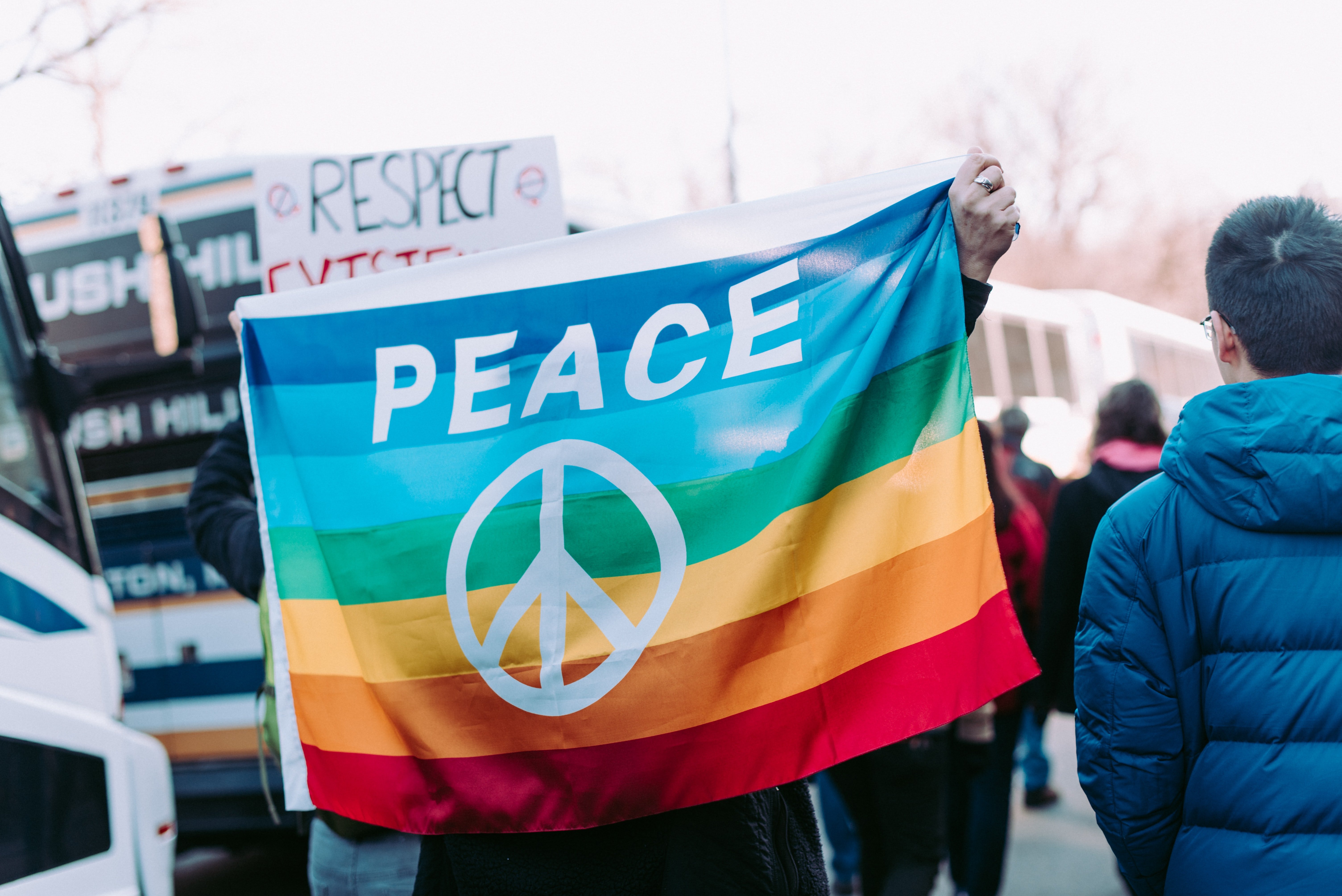Peacebuilders Need to Vote, Then Do More
There is a phenomenon in social justice work called “the snap.”
“The snap” refers to the unique moment in which the tension brewed from inequality and oppression erupts, awakening the individual and at times the collective consciousness. 2020 has brought forth a cascade of “snaps” within the United States and global community, as we have been activated to respond to the very real stress, trauma, and resiliency of this year.
It is fair to say that we are living in a time of pronged crisis—as systemic racism, vast economic inequity, excessive militarism, wide scale environmental degradation, and a life-threatening pandemic battles our minds and bodies. Although the crises of our time are clear, it is equally clear, and rather imperative that we reimagine this crisis as a vital juncture of opportunity.

We, as peace builders, have a particular responsibility to society to help morph periods of crisis into openings for great change. In the upcoming weeks, we have one of the most consequential opportunities of our lifetimes: participating in the 2020 U.S. election.
The 2020 U.S. election should not and cannot be projected as the sole antidote to the problems gripping our world. Yet, the pathway to actualizing the Kroc school’s mission of ending cycles of violence, expanding societal access to justice, and innovating for a better tomorrow is reliant upon our ability to show up and vote in hand this November. Foundational to our identity as peace builders is the commitment to promote the sociopolitical inclusion of the dignified and particular experience of every person.
One of the most essential mechanisms for this inclusion is the right to express one’s vision for progress through participating in a democratic election. The right to vote is inextricably linked to the ability to access fundamental human rights including; the right to freedom from discrimination, the right to health care, the right to clean environment, the right to freedom of movement, the right to equal pay for equal work, and so many more.

The complications of COVID-19 and the use of continual suppression tactics have undermined the capacity to easily engage in the voting process in the US. This challenge pulls us as peacebuilders into a space of accountability to ensure that not only our own voices are heard, but also the voices of those who have been historically silenced by the political system. The issues from our studies that reverberate our conscious and form agendas of advocacy are all at stake in this election.
This election offers us a pivotal chance to shift our classroom appeals for expansive reformation into a stark political demand, through our vote. The ripple of a vote this November exceeds past the year 2020, and rather conditions the revitalization of democracy and commitment to peace and justice for the future.
Casting a ballot in the general election doesn’t only mean creating better opportunities for Americans, but also millions of people around the world. It means uplifting refugees escaping war and persecution, and improving diplomatic relations in areas of the world slowly succumbing to populism and isolationism. It means taking climate change seriously, and leading the technological and scientific breakthroughs that will save millions of people suffering from COVID-19 and other deadly diseases. It also means creating a more inclusive immigration system that celebrates the diverse cultures and talents coming into the United States, not one that tears families apart.
Participating in the presidential election alone, however, won’t solve all of our problems.
We need to bring our values as peacebuilders into our own communities, where activism and local elections continue to shape our daily lives.

In San Diego for example, the mayor we vote into office appoints the police chiefs accountable for the conduct of law enforcement officers protecting our communities. The City Councilmembers we vote for are in charge of passing a $4 billion city budget that includes rent relief programs and economic assistance, while our elected County Supervisors are tasked to oversee the public health agencies that keep us safe from COVID-19.
If we are to make a difference in the world as peacemakers, we can start by voting and getting involved in our own cities. With less than a month until the November 3rd election, it is critical that we create a voting action plan on how and where we will cast our ballots. We need to reach out to our own network of friends and family to make sure their votes are counted, while also educating ourselves on the candidates and propositions on the ballot. More importantly, we need to engage and create continuous dialogue with our communities well beyond each election cycle.
We’re often taught in class about the values of empathy, kindness, and compassion that we as peacebuilders practice—that creating change is a long and often mundane task.
But it is the work we have all set out to do. And as we approach this critical juncture in our politics, we need to not only embody our values, but vote to uphold them.
It is what will bring us closer to a fairer, more just, and more peaceful world we are all working towards.

About the Author
The Joan B. Kroc School of Peace Studies (Kroc School) at the University of San Diego is the global hub for peacebuilding and social innovation. Founded in 2007, the Kroc School equips the next generation of innovative changemakers to shape more peaceful and just societies. We offer master's degrees in peace and justice, social innovation, humanitarian action, conflict management and resolution, and a dual degree in peace and law — programs that have attracted diverse and dynamic students from more than 50 countries. In addition to our graduate programs, the Kroc School is home to the Kroc Institute for Peace and Justice (Kroc IPJ). Founded in 2001, the Institute supports positive change beyond the classroom. Through groundbreaking research, experiential learning, and forward-thinking programs, the Kroc School and Kroc IPJ are shaping a future in which peaceful co-existence is the new normal.






